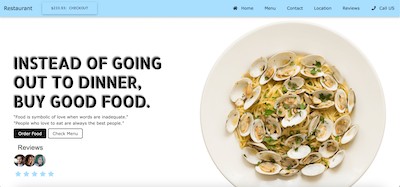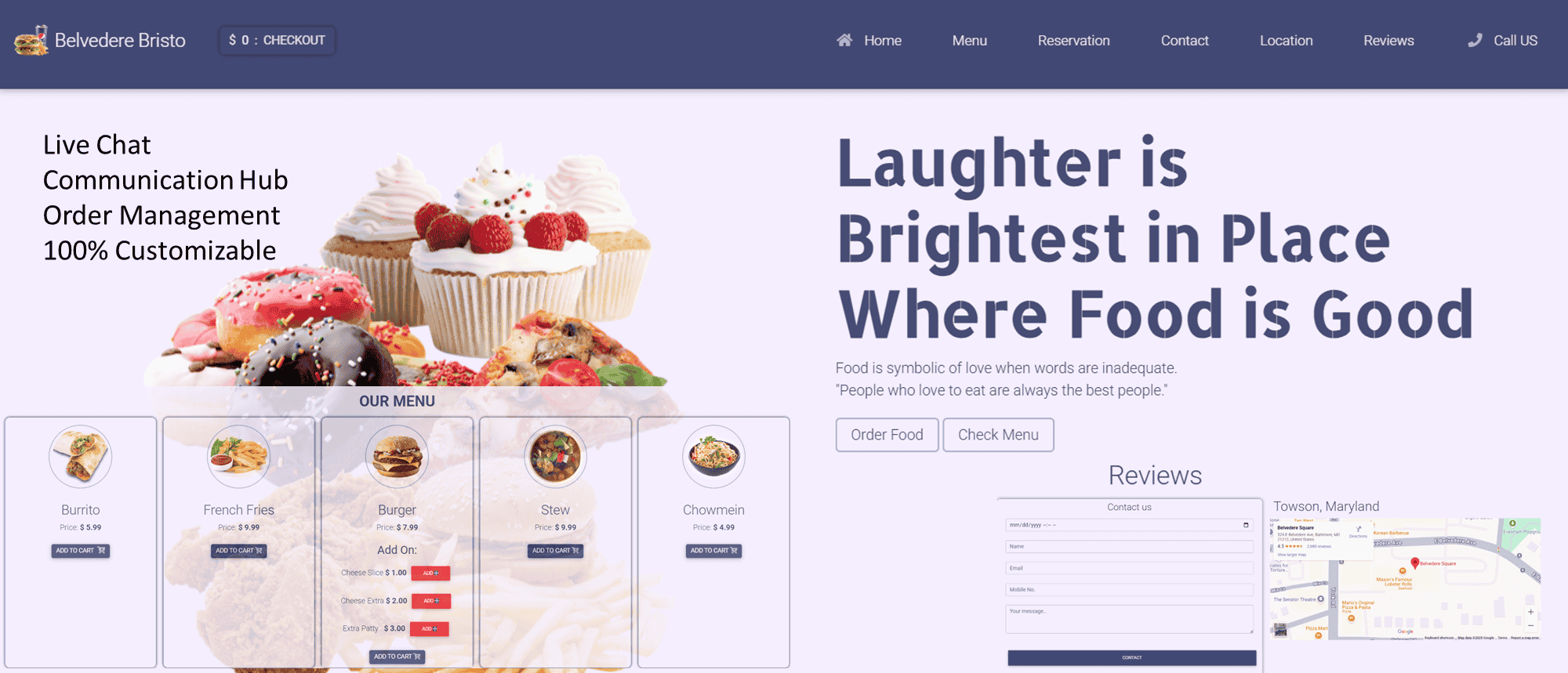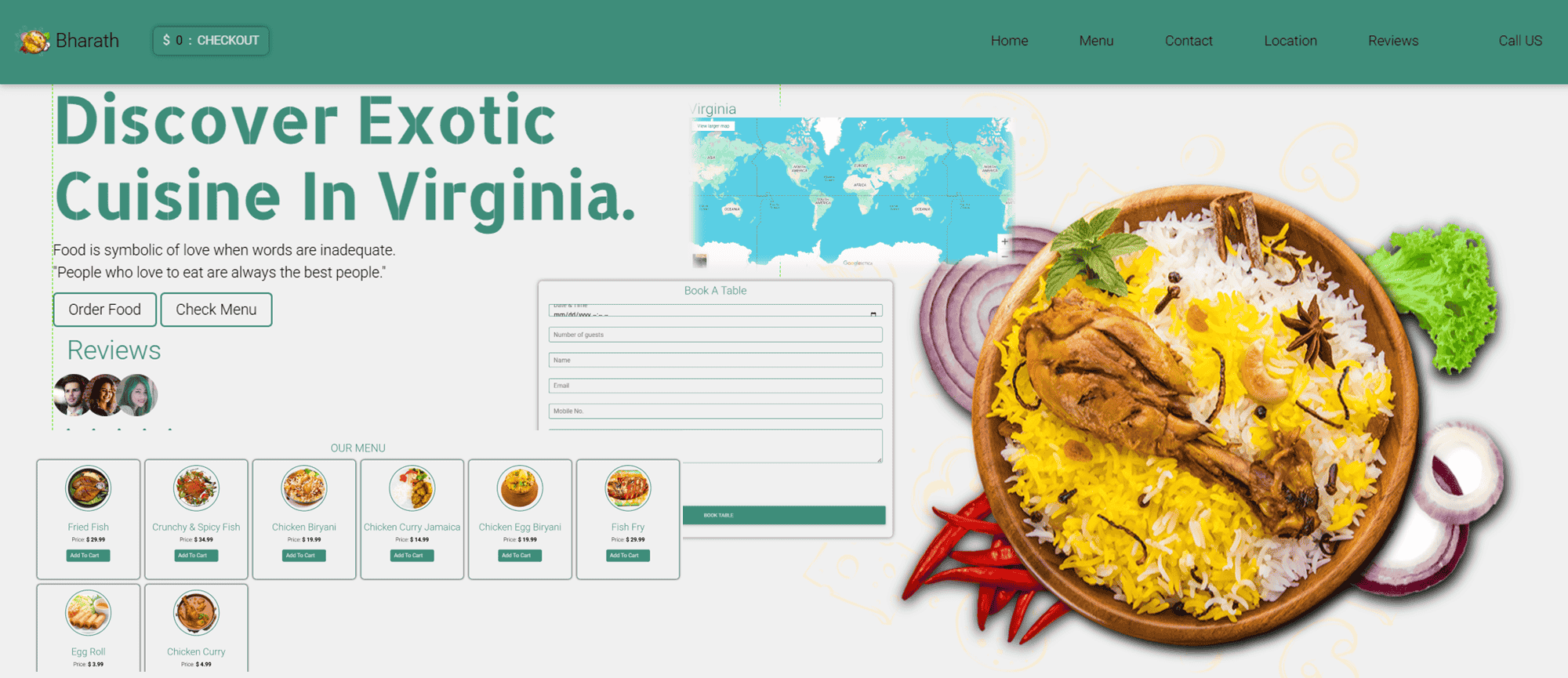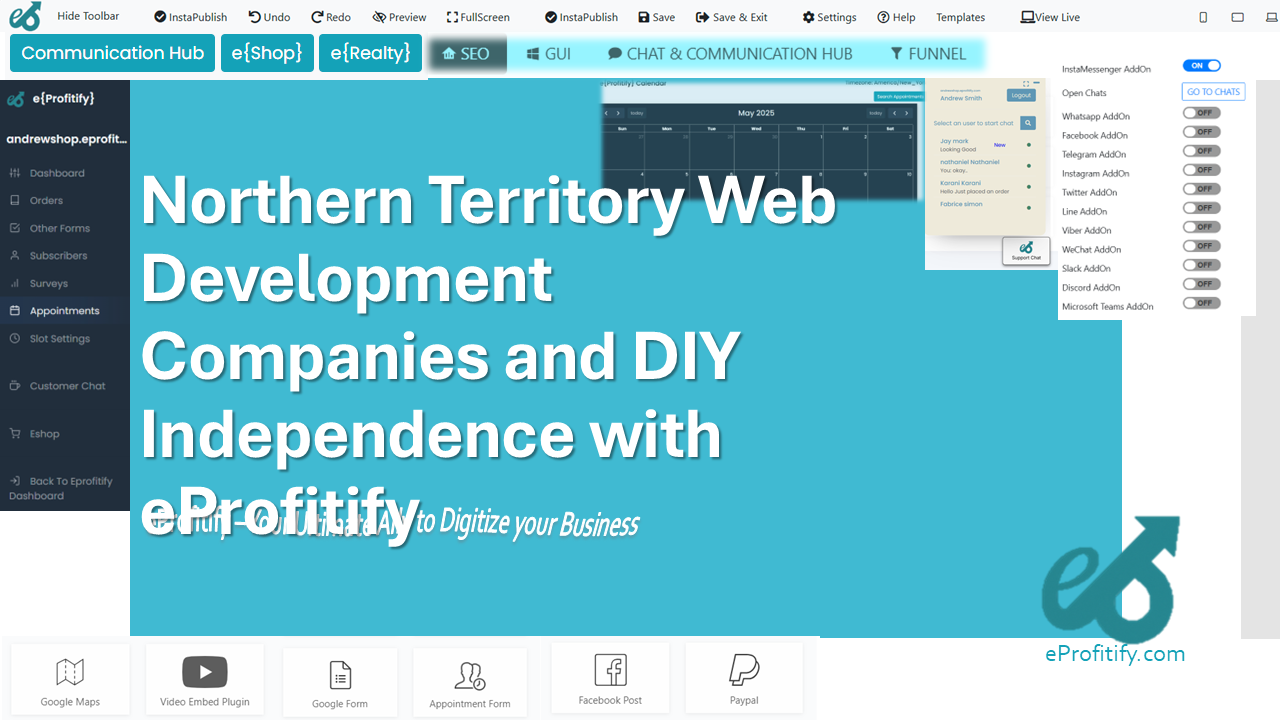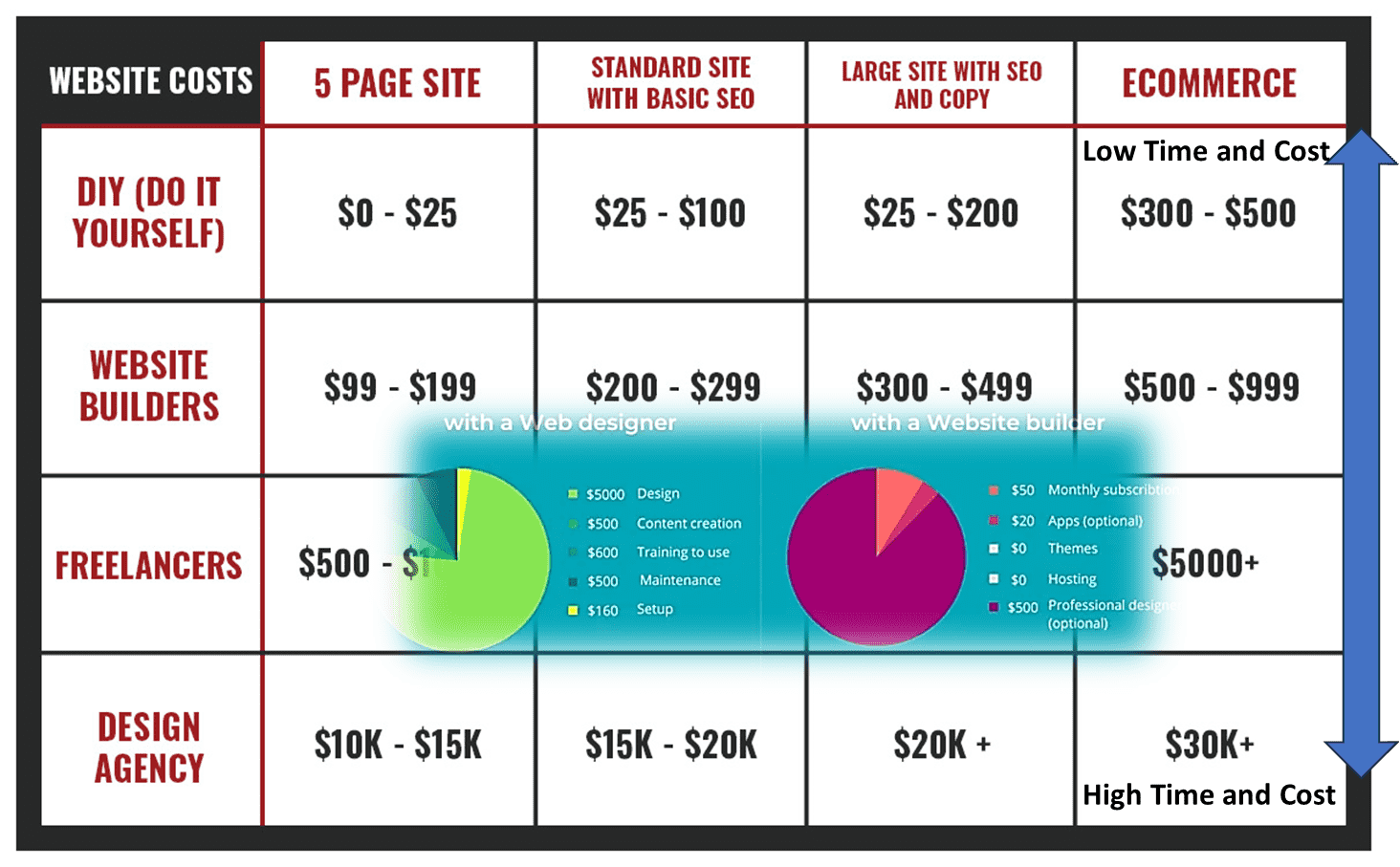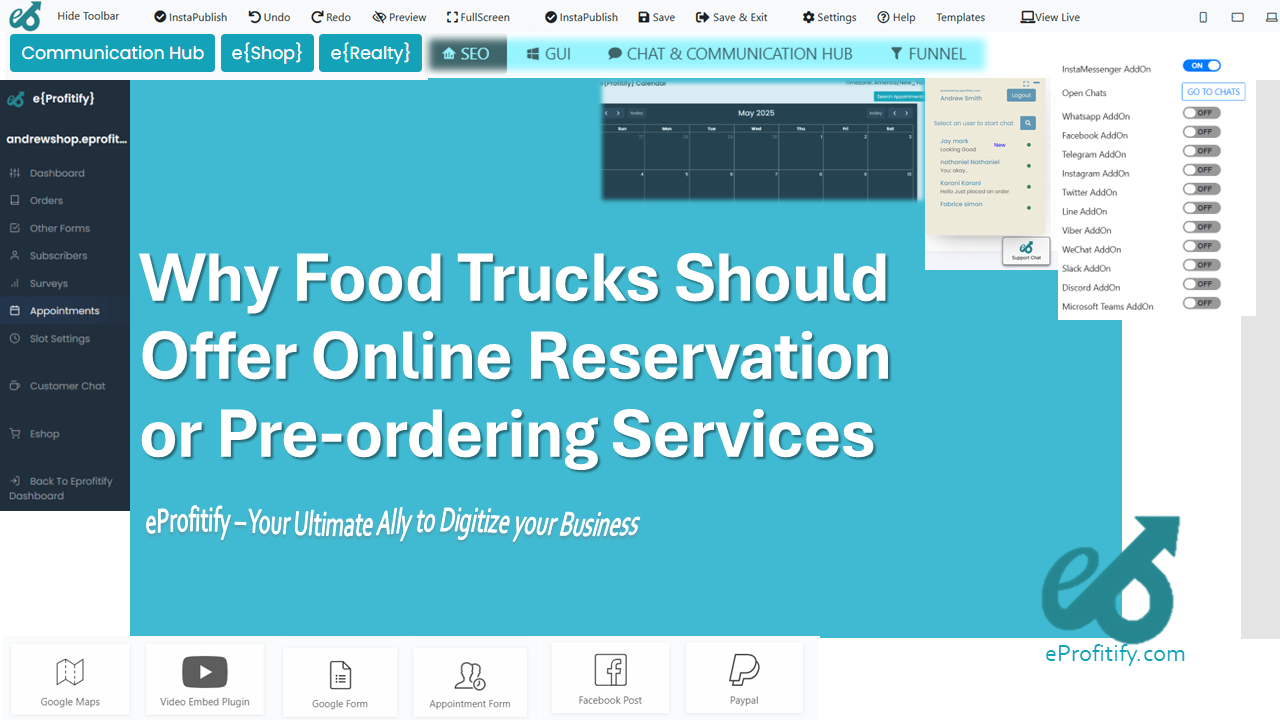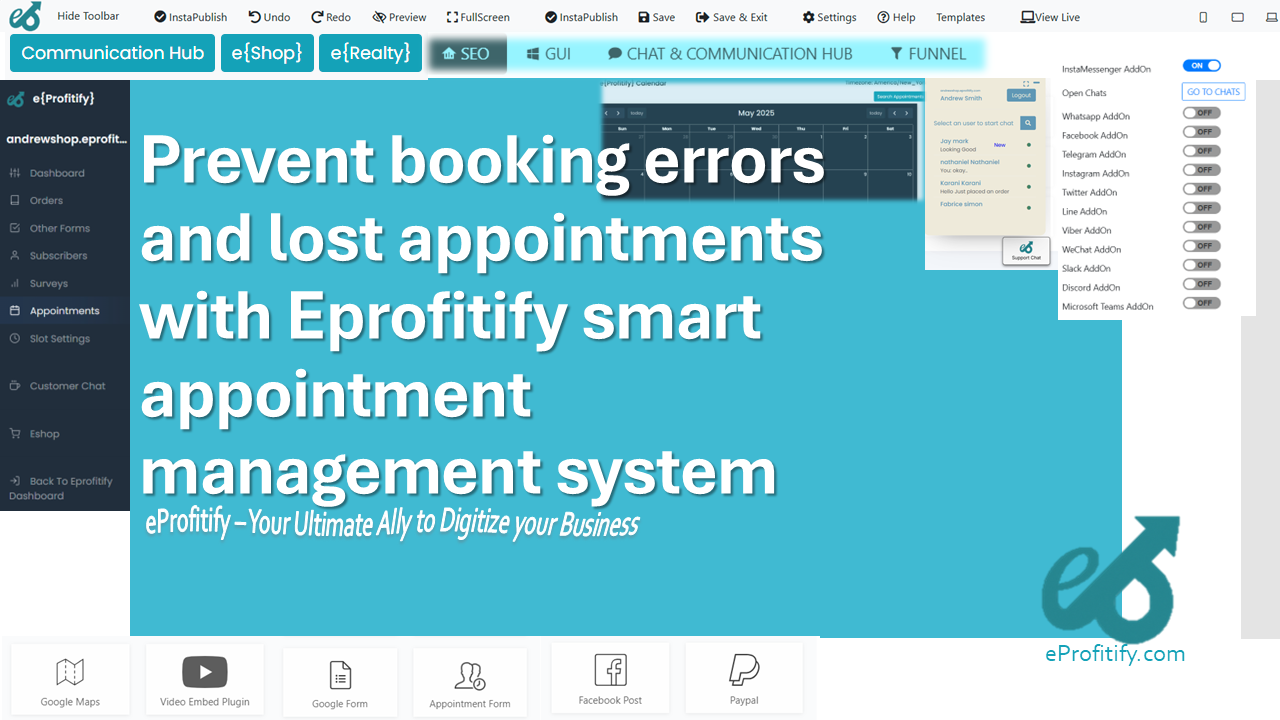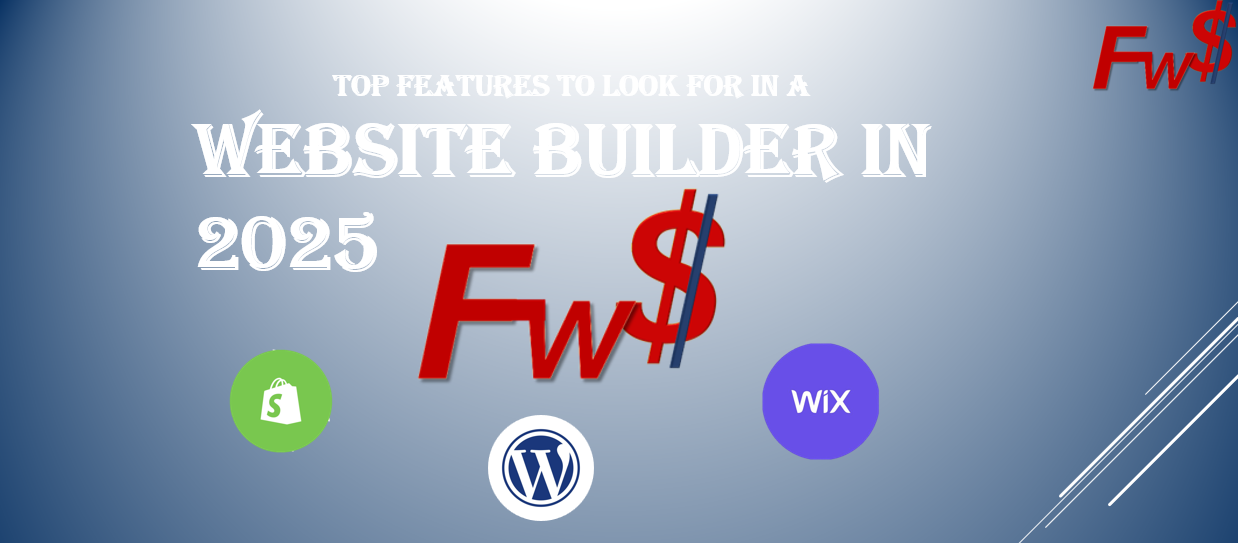Can You Manage Pop Up Retailers Using eProfitify Scheduling System
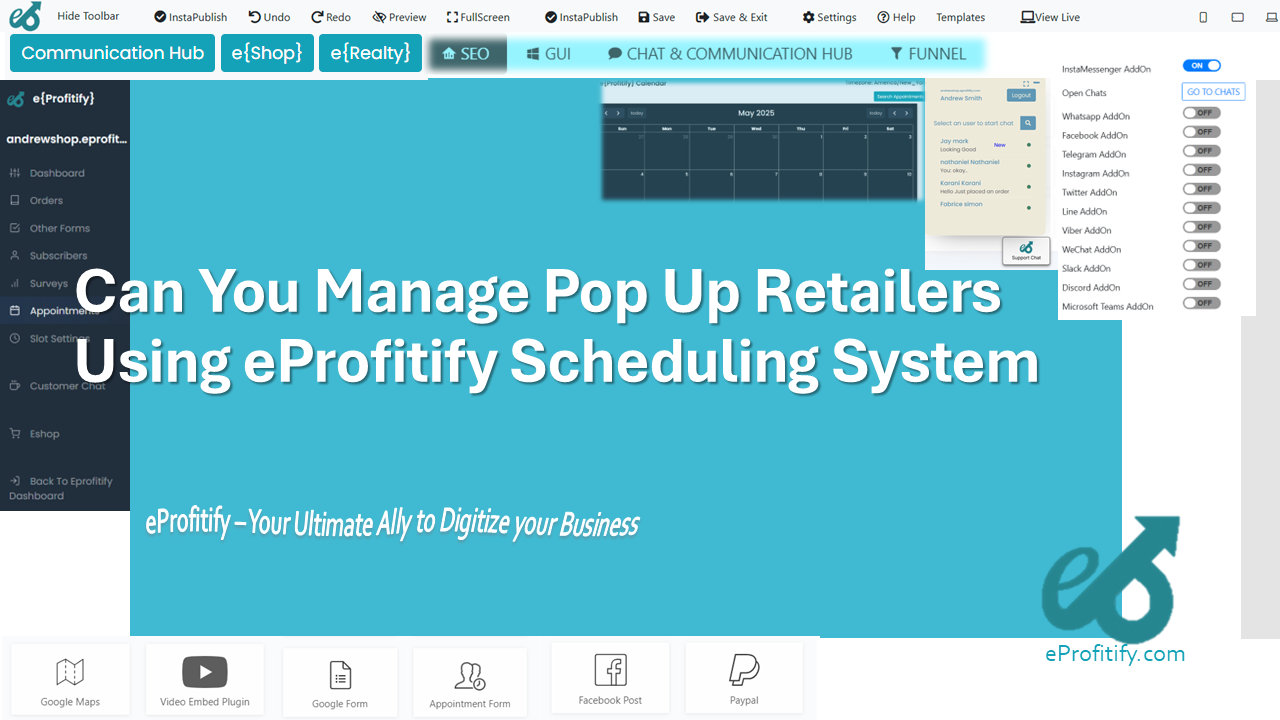
Schedule a LIVE Zoom call with an eProfitify Expert.
The pop-up retail industry has experienced exponential growth in recent years, driven by shifting consumer preferences and the need for brands to create immersive, temporary shopping experiences. According to a report by Grand View Research, the global pop-up retail market size was valued at $84.89 billion in 2023 and is projected to expand at a compound annual growth rate (CAGR) of 12.3% from 2024 to 2030. This surge underscores the demand for agile, cost-effective retail solutions. However, managing a pop-up retailer involves unique challenges, including short-term leases, staffing flexibility, inventory management, and rapid customer engagement. Enter eProfitify—a leading website publishing and management tool—equipped with features like instant messaging, appointment management systems, CRM, and ecommerce integrations. This comprehensive platform is redefining how businesses manage pop-up retail operations.
The Rise of Pop-Up Retail
Pop-up retailers capitalize on scarcity and exclusivity to generate buzz, often appearing in high-traffic locations for days or weeks. A 2023 survey by PopUp Republic revealed that 85% of consumers find pop-up shops exciting, and 60% believe they offer unique products not found elsewhere. However, the transient nature of these ventures demands meticulous planning. Brands must secure permits, coordinate logistics, staff temporary locations, and rapidly market their presence—all while maintaining operational efficiency. Without robust tools, even the most creative pop-up concepts risk operational chaos.
Challenges in Managing Pop-Up Retailers
- Time-Sensitive Operations: Pop-ups thrive on short, impactful durations, which amplifies the pressure to optimize scheduling. Traditional retail management systems often lack the flexibility to handle abrupt changes.
- Staff Coordination: Hiring temporary staff and aligning their shifts with peak customer hours requires precision. A 2022 study by Retail Dive found that 44% of pop-up retailers struggle with staffing inefficiencies.
- Inventory Management: Limited-time setups necessitate real-time inventory tracking to prevent stockouts or overstocking.
- Customer Engagement: Building relationships quickly is critical, with 67% of customers expecting personalized interactions even in temporary setups (Salesforce, 2023).
How eProfitify’s Scheduling System Transforms Pop-Up Management
eProfitify’s scheduling system addresses these challenges head-on. Its intuitive interface allows businesses to map out pop-up timelines, assign staff shifts, and adapt to real-time changes seamlessly. For instance, if a pop-up event is extended due to high demand, managers can instantly update schedules and notify staff via the platform’s instant messaging feature. This eliminates communication gaps, a common pain point cited by 52% of temporary retail managers (IBISWorld, 2023).
The system also integrates appointment management, enabling customers to book time slots for exclusive shopping experiences. This feature not only reduces overcrowding but also enhances data collection, as businesses capture customer preferences pre-visit. According to eProfitify’s internal data, pop-ups using appointment systems see a 30% increase in average order value compared to walk-in-only models.
Beyond Scheduling: eProfitify’s Comprehensive Toolset
While scheduling is pivotal, eProfitify offers a suite of tools tailored for pop-up success:
-
Ecommerce Integration: Pop-ups often serve dual purposes—driving in-person sales and funneling traffic to online stores. eProfitify’s platform bridges this gap by syncing in-store POS data with online inventories. Retailers can launch flash sales or promote “online exclusives” during the pop-up’s run, creating a cohesive omnichannel strategy.
-
CRM Capabilities: Building customer loyalty in a limited timeframe is challenging. eProfitify’s CRM tracks buyer behavior across touchpoints, allowing brands to send personalized post-event follow-ups. For example, a beauty brand hosting a weekend pop-up can use CRM insights to email skincare tips and product recommendations, driving repeat purchases.
-
Analytics Dashboard: Real-time metrics on foot traffic, conversion rates, and peak hours empower businesses to adjust strategies on the fly. One retailer reported a 25% boost in sales after using eProfitify’s analytics to optimize staffing during high-traffic periods.
-
Instant Messaging and Notifications: Staff can communicate internally for quick issue resolution, while automated SMS/email reminders reduce no-shows for appointments.
Case Study: Boosting Efficiency with eProfitify
A Los Angeles-based fashion pop-up utilized eProfitify to manage its 10-day event across three locations. By leveraging the scheduling system, they reduced shift conflicts by 40% and improved staff productivity by automating task assignments. The integrated CRM captured 500+ customer emails, leading to a 15% conversion rate in post-event online sales.
The Future of Pop-Up Retail with Technology
As pop-ups evolve, technology will remain a cornerstone. Platforms like eProfitify, which combine scheduling, CRM, and omnichannel tools, are poised to dominate. Juniper Research estimates that AI-driven retail management tools will save businesses $340 billion annually by 2027 through operational efficiencies—a trend eProfitify users are already capitalizing on.
In conclusion, eProfitify’s robust ecosystem simplifies pop-up management, turning logistical headaches into strategic advantages. By harmonizing scheduling, customer engagement, and analytics, it empowers brands to maximize their temporary ventures while laying the groundwork for long-term growth. In an industry where time equals revenue, eProfitify is not just a tool—it’s a competitive edge.
